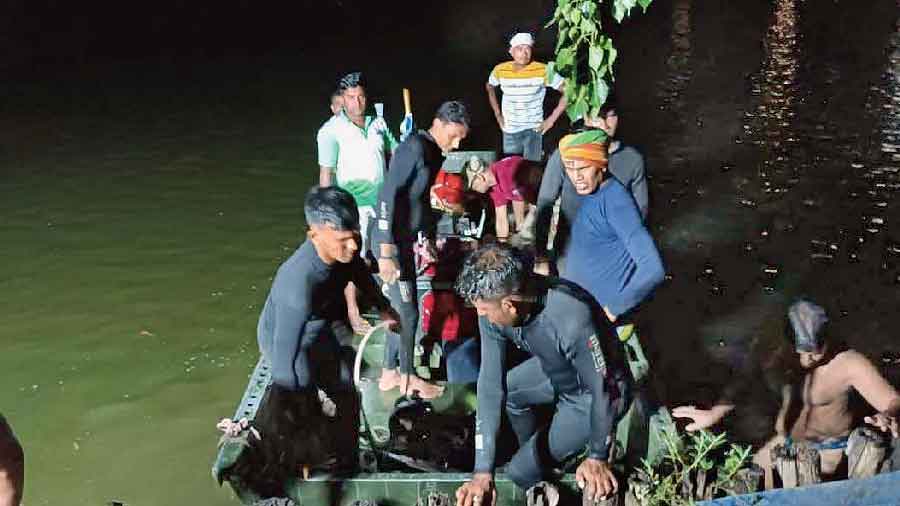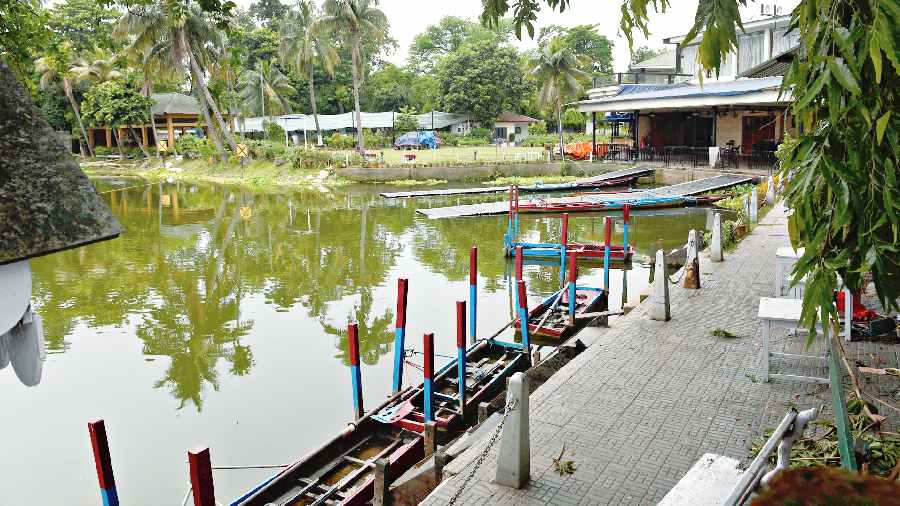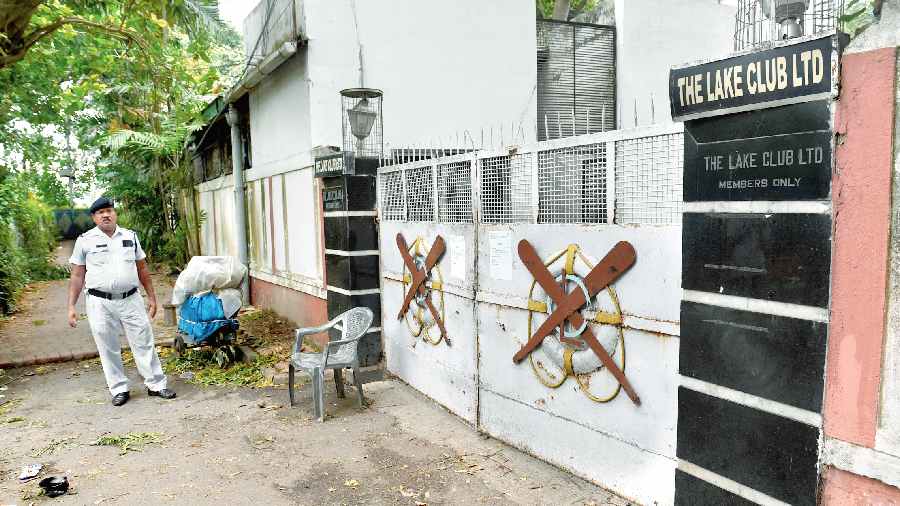A day after two 14-year-old rowers from South Point High School drowned in Rabindra Sarobar, allegations of not heeding to alerts of a squall and not having a rescue boat ready surfaced.
The bodies of the two students, Souradeep Chatterjee and Pushan Sadhukhan, were cremated at Keoratala on Sunday. The families of the two students did not lodge any police complaint till late on Sunday, said an officer of Kolkata police.
The Telegraph spoke to police officers, officials of Kolkata Metropolitan Development Authority (KMDA), custodian of Rabindra Sarobar, and several rowers on the standard operating procedures or the lack of them.
Rescue boat
There was no rescue speedboat that could have travelled quickly to the accident site to pick up rowers whose boats had overturned, eyewitnesses, police, KMDA and Lake Club officials said. A few wooden boats (dinghies) were initially engaged in the rescue operation.
The KMDA had asked the clubs to keep battery-operated fast-moving rescue boats instead of diesel or petrol-run speedboats for rescue. The clubs, however, did not have any battery-operated fast-moving rescue boat.
“We had a meeting with the rowing clubs about a week ago. We told them that they must have battery-operated rescue boats. We had told them very clearly that they should not compromise on safety standards but they cannot use diesel or petrol-run rescue boats,” said a KMDA official.
The meeting was in response to complaints that the KMDA received that the rowing clubs were using speedboats run on diesel or petrol, violating National Green Tribunal orders.
On Saturday, a speedboat was pressed into action not before 5.30pm, after taking verbal permission from KMDA because of the emergency situation, said an official of the Lake Club, from where the rowers who died and two others launched their practice.
The club’s version: Debabrata Dutta, joint secretary of the Lake Club, said the KMDA did not communicate formally to the club to keep battery-operated boats.
There were diesel/petrol-operated speedboats but they had to be withdrawn after KMDA wrote to the clubs on May 18 seeking a “clarification” for using “diesel/petrol operated motorised speedboats... within the Rabindra Sarobar”.
“This is a severe violation of the NGT norms,” the KMDA letter said.
“The speedboats have not been used since then. Even on Saturday, making the boat ready for use took up a lot of time. The motor was detached from the boat,” said an official of Bengal Rowing Club.
Dinghies rescued several rowers, said an official of the Lake Club. “Several rowers were brought back to the shores on dinghies. It was then that we realised that two rowers were missing. Then, the speedboat was pressed into service. Had the KMDA not issued the order, the speedboat could have been deployed much faster,” said an official.
Squall alert
The Met office had issued an alert of a thunderstorm around 4pm on Saturday. Within minutes, the news channels were flashing the alert. The squall began around 4.15pm. The maximum wind speed of 90kmph was recorded around 4.29pm, the Met office said. The boat overturned around 5.15pm, the police said.
Though the squall began around 4.15pm, the sky had started looking ominous from around 4pm. Dark clouds had enveloped the sky.
“We asked the officials of the rowing clubs why they didn’t call back the rowers when there was a squall alert. They said they could not comprehend that something like this would happen,” said a senior KMDA official.
A rower who was on the same boat as Souradeep and Pushan said they took to the waters around 3.45pm, when the sky was clear. The four were practising for the finals of a school regatta.
The club’s version: Dutta had said on Saturday that the club did not have an official channel of communication with the Met office. On Sunday, he said: “When the crew had left, the sky was clear. They were coming back when the sky had turned dark. Is it possible to switch on the TV all the time? The parents of the rowers (not only the South Point students) were on the club premises. Nobody raised an alarm until the boats toppled. The whole incident (of boats toppling) happened within a span of 10 to 12 minutes. It was an extremely unfortunate accident.”
Emergency training
A student who survived the accident alleged they were not taught how to react if there was an emergency. “I had no idea that our boat was not going to sink. Had I known that earlier, I would not have risked my life trying to swim through the turbulent water,” said one of the students.
He was also not prepared on how to rescue himself when his foot was stuck in the boat which had overturned
The club’s version: Dutta said the four students on the boat that included the two who drowned were not regular rowers at the club. “They were representing their school and using our equipment,” he said. “But even then, as an SOP, they were told to cling on to their boats if they capsize.”


